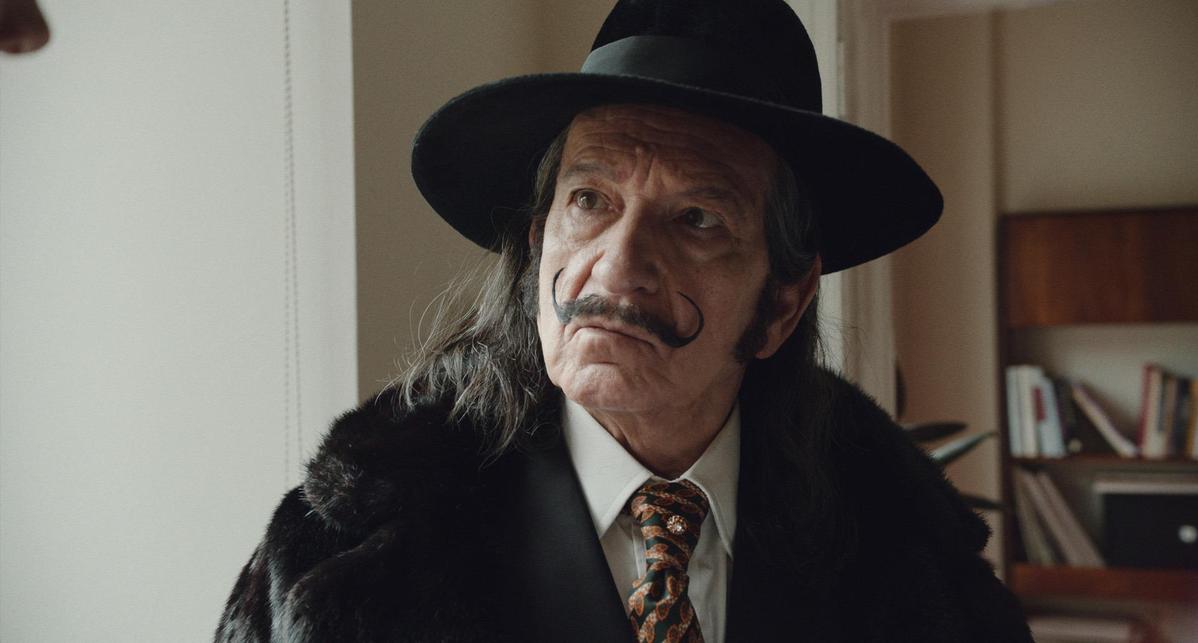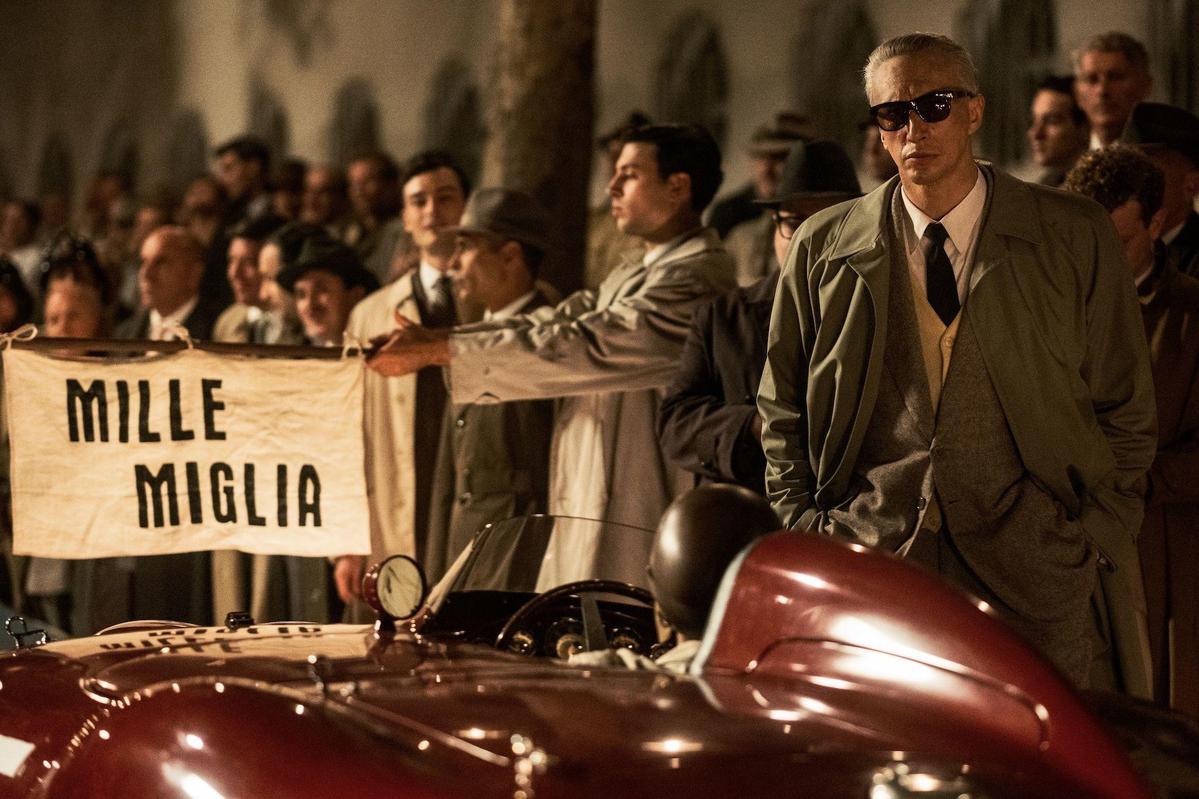Conventional takes on unconventional lives


Spanish painter Salvador Dal and Italian engineer Enzo Ferrari were trailblazers. For Dal, that meant leaping to the fore of Europe's surrealist movement of the 1920s. For Ferrari, it was about parlaying his early racing career into a company that would redefine cars. Both were deeply impacted by World War II, and now owning a piece by either is a spectacular status symbol. It's surprising that it has taken this long for biopics of two of the 20th century's great minds to happen.
Director Mary Harron is still best known for American Psycho, and her knack for navigating complex psyches serves her well in Dalland, a portrait of the artist as an older man living in the hedonistic New York of the 1970s. In Ferrari, Michael Mann dispenses with his characteristic stylized crime (Heat) for a similarly specific and intimate examination of the automotive titan before he became the titan we know today.
Harron's Dalland follows the exploits of James (Christopher Briney), a young gallery worker who falls into Dal's (Ben Kingsley) circle of glamour and hangers-on after accepting a job as the artist's assistant. During an intense three weeks, James gets an up-close look at Dal's co-dependent but affectionate relationship with his wife and muse, Gala (Barbara Sukowa), besides a crash course in art and aging.
In Ferrari, Mann zeroes in on the short, intense period in 1957 when Enzo (Adam Driver) finds himself juggling a financial crisis, an existential threat from rival Maserati, and divided loyalties between two women - wife and business partner Laura (Penlope Cruz), and lover and mother of his second son, Lina Lardi (Shailene Woodley).

Harron and Mann thankfully focus on the defining moments in the lives of their subjects rather than aim for a familiar comprehensive biopic that always falls flat for rushed approaches and surface-level explorations. Ironically, both are conventional within those parameters despite their subjects being two of the world's most unconventional figures.
No one expects a definitive "explanation" as to why Dal created The Persistence of Memory, but the relatively standard format Harron takes belies just how outre Dal and his works were. What we get is a reflection on the fleeting nature of the cult of personality and how fast it evaporates as one ages.
Nonetheless, Kingsley and Sukowa make the most of John C. Walsh's safe script, and inject the fairly rote romance with something more than simply love and respect. Kingsley is an Oscar winner (for Gandhi), and Sukowa is one of Germany's most underrated actors (Lars von Trier's Europa, David Cronenberg's M. Butterfly). So it comes as no surprise that they find an emotional thread to tug on in the dynamic they create between Dal and Gala.
With Ferrari, writer Troy Kennedy Martin positions Enzo as a man caught between two extreme lives. In one, he's a regular man in an unremarkable but contented life in the countryside, with Lina and his son Piero. In the other, he's an ultra-competitive perfectionist in Modena, who relies on his tense relationship with Laura to guide Ferrari S.p.A. to success, despite both grieving the death of a son.
The racing sequences are suitably white-knuckle, and there are more than a few moments showcasing Mann's eye for visual storytelling. For a man that has set the tone for style for decades, it's strange that Mann opted for respectful stateliness instead of pushing the creative envelope. In the end, both films are fine documents of key chapters in a trailblazer's life rather than the innovative ruminations on creativity they could have been.
- Mainland open to collaborate with Taiwan parties, groups
- China Coast Guard patrols territorial waters of the Diaoyu Island
- Research breakthrough explains how viral infection can lead to multiple sclerosis
- Mainland vows stringent countermeasures against diehard Taiwan separatists
- Paid study spaces gaining popularity among China's dream-seeking youth
- Mainland slams DPP for selling out Taiwan to please external forces





































